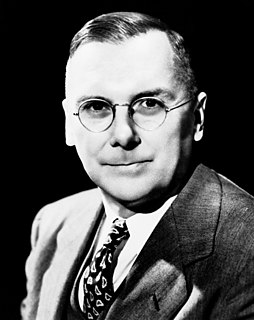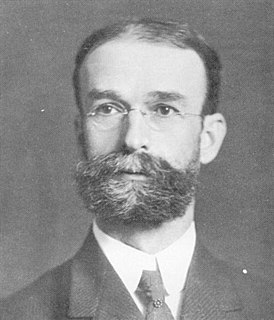A Quote by Hugh Latimer Dryden
[The purpose of flight research] is to separate the real from the imagined problems and to make known the overlooked and the unexpected.
Related Quotes
The book Dynamic Programming by Richard Bellman is an important, pioneering work in which a group of problems is collected together at the end of some chapters under the heading "Exercises and Research Problems," with extremely trivial questions appearing in the midst of deep, unsolved problems. It is rumored that someone once asked Dr. Bellman how to tell the exercises apart from the research problems, and he replied: "If you can solve it, it is an exercise; otherwise it's a research problem."
There are some who question the relevance of space activities in a developing nation. To us, there is no ambiguity of purpose. We do not have the fantasy of competing with the economically advanced nations in the exploration of the moon or the planets or manned space-flight. But we are convinced that if we are to play a meaningful role nationally, and in the community of nations, we must be second to none in the application of advanced technologies to the real problems of man and society.
The technological overflow from scientific research has brought scientific research this bad name about carrying an irresponsibility and an alienation from God - because scientific research has led to things like the atom bomb, it's led to problems with depletion of ozone in the Earth's atmosphere, or at least it's revealed those problems.
[In the case of research director, Willis R. Whitney, whose style was to give talented investigators as much freedom as possible, you may define "serendipity" as] the art of profiting from unexpected occurrences. When you do things in that way you get unexpected results. Then you do something else and you get unexpected results in another line, and you do that on a third line and then all of a sudden you see that one of these lines has something to do with the other. Then you make a discovery that you never could have made by going on a direct road.
The most important lesson of American history is the promise of the unexpected. None of our ancestors would have imagined settling way over here on this unknown continent. So we must continue to have society that is hospitable to the unexpected, which allows possibilities to develop beyond our own imaginings.
At the end of the day, I sit down for about five minutes and review all the problems I'm working on, research problems or writing problems, and I go to sleep. Then when I wake up in the morning, I've trained myself to not open my eyes and to just lie there and recall the problems and see if there's anything there.





































